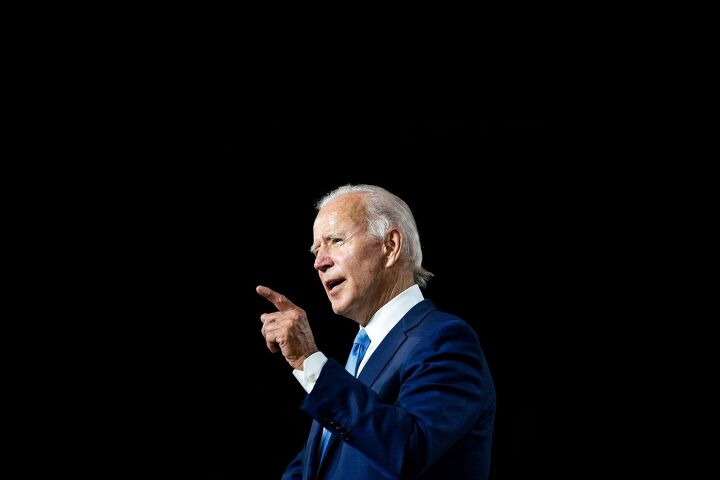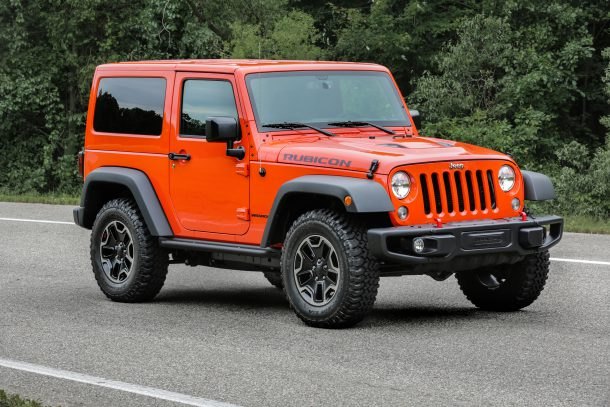#BuyAmerican
Editorial: This Isn’t The Time For Biden’s ‘Buy American’
Two weeks ago, President Joe Biden announced during the State of the Union that federal infrastructure projects will, going forward, be required to use all American-made construction materials. Applause resounded throughout the divided chamber.
And why not? Nobody ever wins an election - especially when it’s not an election year - by promising to buy more foreign-made goods.
Irrelevant 'Most-American Car' Ranking Changes Criteria, If Only to Flesh Out Results
While there are some who still proudly use the old slogan “ Buy American,” the concept is only loosely applicable to automobiles. While you can certainly support American brands, every automobile on the road is an amalgamation of parts from all over the world — and has been for quite some time.
This year, the automotive research website Cars.com, which began ranking the country’s “most-American” vehicles in 2006, was forced to change its criteria after only three models qualified under the old system of measurement.
For 2017, Cars.com has added country of engine origin, country of transmission origin, and U.S. factory employment relative to a company’s sales to its previous criteria of American parts content and final assembly location. It was also forced to lower the overall percentage of domestic parts a car needs to qualify by a full fifteen percent — from 75 to 60 percent.
UAW Could Soon Tell You to 'Buy American,' But Will Buyers Listen?
Before the end of the 1980s, disenchanted drivers were voting with their wallets in ever greater numbers. Family sedan buyers, burned by the quality control issues of the late 1970s, turned their attention to the Toyota Camry and Honda Accord, while German automakers increasingly carved off a larger slice of the premium segment pie.
In many cases, the buyers who turned their backs on domestic vehicles stayed in their new camp for years, buying another, and then another Japanese or German car. Luring them back remains a difficult task, as stigma often fades at a slower rate than quality improves.
“Buy American” campaigns are nothing new, but President Donald Trump’s ascent to the Oval Office has spurred a newfound focus on the health of the Detroit Three automakers. In a bid to bolster that health, the United Auto Workers union is on the verge of telling you to drive past all those import dealers.
Come home to America.
New or Used: Being a Parent…to Your Parent
TTAC Commentator Jimal writes:
Sajeev and Steve,
I have one of those quandaries that most adults will go through sooner or later in life and I figured I would tap into you and the B&B for suggestions. My father passed away recently after a long illness and I’m helping my mother with settling his estate; cleaning up finances, etc. Among the things my father left behind were his 2005 Buick LeSabre, which my mother hates, and her cherished 1996 4-door Chevy Blazer.
GM Admits It Lied About Federal Stimulus Package's Job Creation
First, let’s get something out in the open. The Detroit Free Press’ story on the jobs impact of Uncle Sam’s Motown mega-order forgets to mention one salient fact. As TTAC reported back in June, one-third of the 17,600 vehicles ordered from Chrysler, Ford and GM were/are/will be assembled outside the United States. Any article about the order’s effects on American jobs should begin with that fact, which this one has. Surprise! The federal fleet sailing to The Big Three’s rescue did no such thing for American autoworkers. “The overriding purpose of the stimulus was to jump-start the economy and create jobs, though Obama never claimed the vehicle purchases would create jobs. While the latest reports from stimulus recipients show all three carmakers getting orders totaling $270 million so far, job creation from the purchases was nil.” Don’t you just love it when the media pre-apologizes for the President? How about when a major manufacturer lies about its federal blessing to please its federal taskmasters?




















Recent Comments